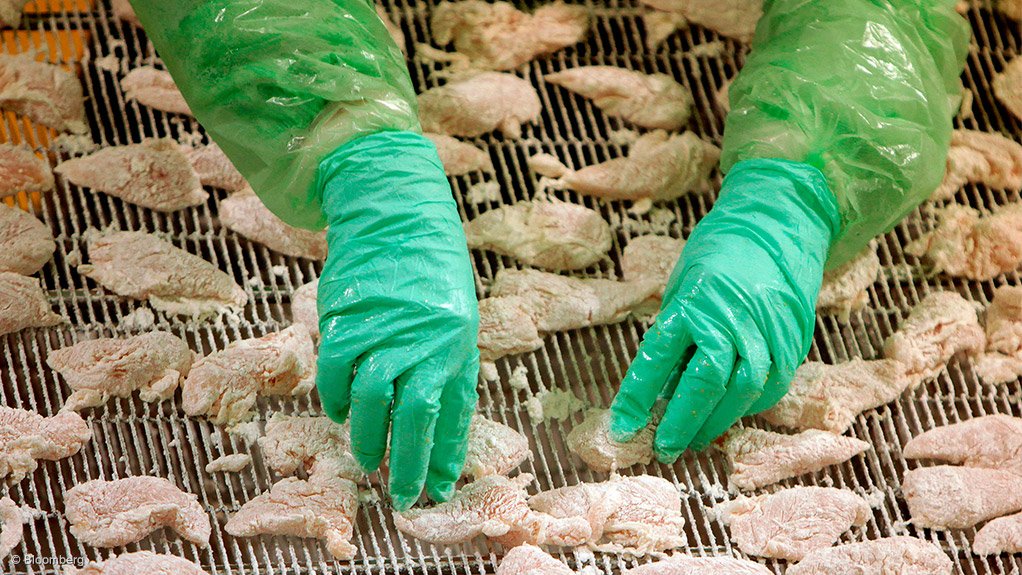South Africa and the US are painstakingly inching towards a resolution of their protracted trade dispute over US meat imports which is threatening South Africa’s access to the US market.
But the government’s draft legislation to force foreigners to sell off their majority shares in private security companies is now posing a bigger threat to South Africa’s continued participation in the African Growth and Opportunity Act (AGOA) and even to potential loans from the World Bank and International Monetary Fund.
On Monday economist Roelof Botha of the Gordon Institute of Business Science said at the South African Chamber of Commerce and Industry in Johannesburg that the security legislation could knock R133,4-billion off South Africa’s GDP, R52-billion off tax revenue and cost about 850 000 formal and informal jobs.
Those would be the effects of the act discouraging foreign investment, losing South Africa’s duty-free access to the lucrative US market through AGOA and likely provoking trade retaliation from US and European countries.
The Private Security Industry Regulation Amendment Act has been passed by both houses of Parliament but it has been sitting on President Jacob Zuma’s desk unsigned for seven months because of the huge controversy surrounding its Section 20 (d).
That would force foreign private security firms to sell at least 51% of their firms to South Africans. Pretoria says foreign ownership is a threat to national security, a claim the firms scoff at.
US officials have warned that if Section 20(d) is not removed, the US government would very likely deem that South Africa is expropriating US property.
That would automatically disqualify South Africa from continued participation in AGOA and would also oblige US representatives on the IMF and World Bank to veto any loans from those international financial institutions to South Africa.
In 2010, US support was vital to South Africa in securing a $3.75-billion loan for its Medupi coal-fired power station.
Dropping Section 20(d) is one of four demands which the US is making before it will allow South Africa to continue enjoying its very lucrative AGOA benefits, especially the export of cars.
The other three demands are for greater access for US chicken, beef and pork imports in South Africa which have been banned for up to 15 years, mainly on health grounds.
Earlier this year the US Congress passed legislation to extend AGOA, which is expiring this year, for another ten years. But it specifically made South Africa’s continued participation conditional on the country agreeing to make concessions on the four issues by a September 30 deadline.
Though this deadline has passed, an agreement between veterinarian experts from both sides at a meeting in Pretoria last month, seems to have pushed out the deadline until at least October 15.
That was the date they set each other for a final agreement on allowing a quota of 65 000 tonnes of US poultry into South Africa. The quota was agreed on in June but South Africa continued to cite outbreaks of avian flu in the US as a reason to block the imports.
Now Pretoria has agreed in principle to “regionalise” the poultry imports, by accepting US poultry from states where there is no avian flu.
Officials say South Africa has also backed off its earlier demand that its inspectors should be allowed to visit all US beef facilities to ensure none are contaminated with mad cow disease. It has agreed to be more selective.
The US says it has been declared free of the disease already by the World Animal Health Organisation OIE anyway.
And officials add that the two sides were also close to agreeing on a health certificate to allow some cuts of US pork into South Africa, after processing to avoid diseases risk.
US sources say that despite the narrowing of differences, bureaucratic procedures on the South African side are still causing long delays. They now hope the first US poultry imports will arrive before the end of the year.
Still, the meat threat to South Africa’s AGOA benefits seems to be fading. But if Zuma signs the security act into law as it now stands, all that will change.
EMAIL THIS ARTICLE SAVE THIS ARTICLE
To subscribe email subscriptions@creamermedia.co.za or click here
To advertise email advertising@creamermedia.co.za or click here











